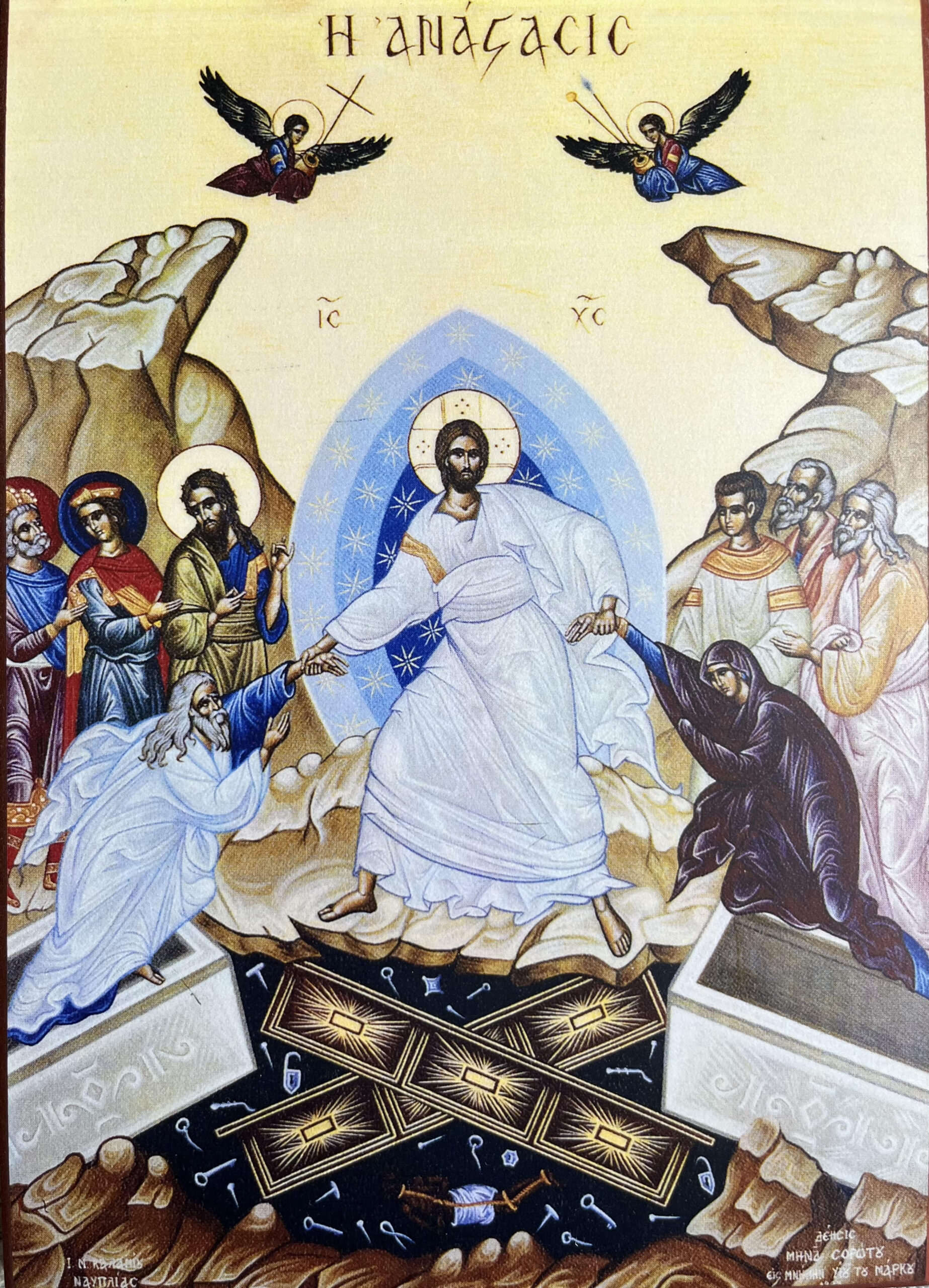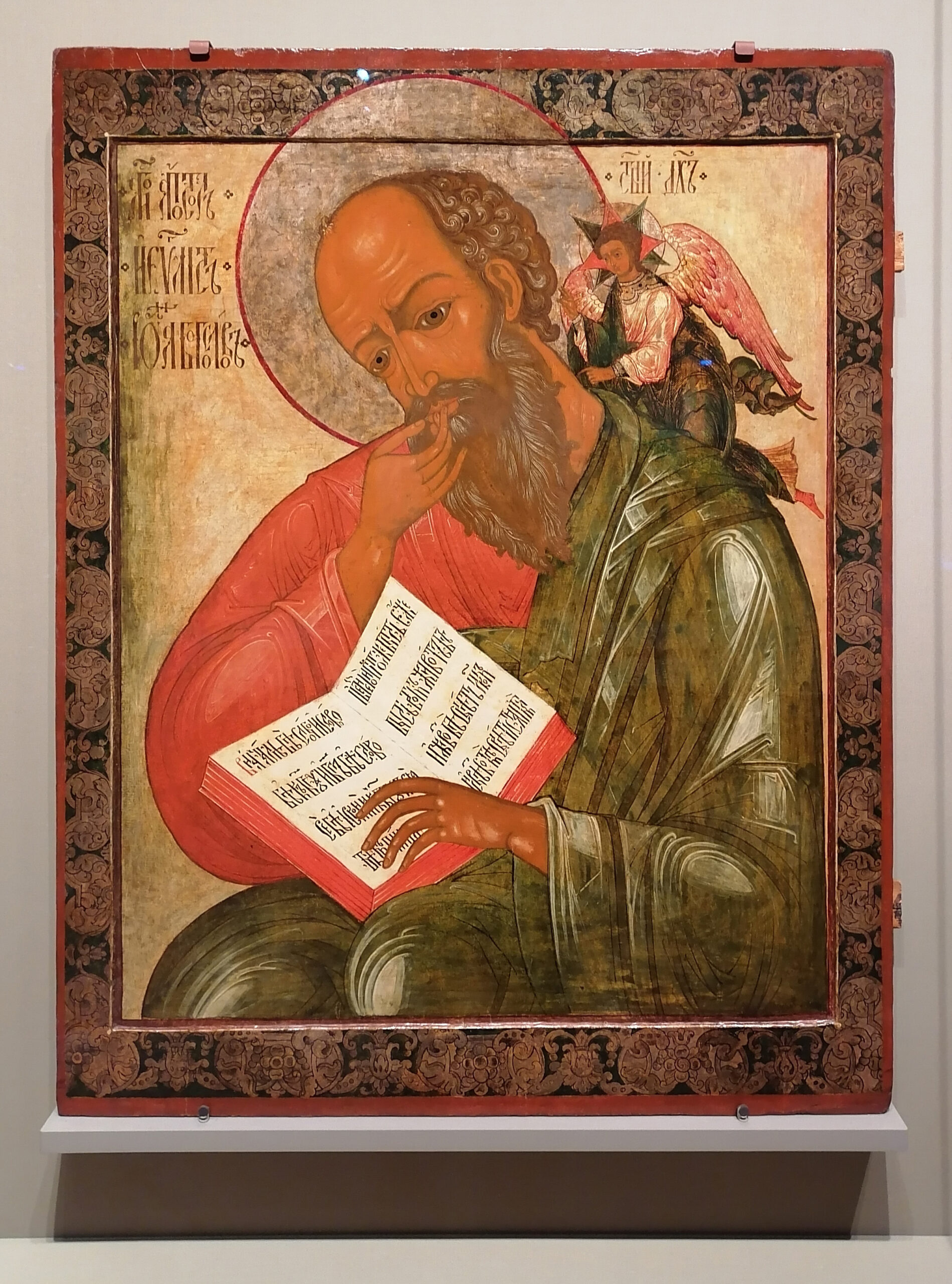The great Moses, mystically foreshadowed this day, saying: “And God blessed the seventh day. For this is the blessed Sabbath; it is the day of rest, in which the only-begotten Son of God rested from all His works, and through the dispensation of death, in body He rested. And having returned to it again through the Resurrection, as the only Good and merciful Lord, He granted to us life eternal.
~Doxastikon, Praises, Lamentations, Good Friday Evening, Trans. by Fr. George Papadeas
—
Thus the heavens and the earth were finished, and all the host of them. And on the seventh day God finished His work which He had done, and He rested on the seventh day from all His work which He had done. So God blessed the seventh day and hallowed it, because on it God rested from all His work which He had done in creation.
Genesis 2: 1-3
Remember the Sabbath day, to keep it holy. Six days you shall labor, and do all your work; but the seventh day is a Sabbath to the Lord your God; in it you shall not do any work, you, or your son, or your daughter, your manservant, or your maidservant, or your cattle or the sojourner who is within your gates; for in six days the Lord made heaven and earth, the sea, and all that is in them, and rested the seventh day; therefore the Lord blessed the Sabbath day and hallowed it.
Exodus 20:8-11
Ever wonder why the crucifixion happened on a Friday, instead of another day of the week? In the creation story from Genesis, the work of the creation was finished on the sixth day, as we read in Genesis 2:1. On the seventh day, God rested. The seventh day is called the Sabbath, and is a day that is blessed and hallowed to the Lord.
When the Ten Commandments were given in Exodus 20, one of the commandments is to “Remember the Sabbath day, to keep it holy.” (Exodus 20:8) The Book of Exodus then fleshes out the meaning of this commandment, stating that no work will be done by anyone, not by the man of the house, his children, his servants, or even his animals. Even the sojourner is not to work.
(A comment on the seven-day creation—In 2 Peter 3:8, we read, “with the Lord one day is as a thousand years, and a thousand years as one day.” This means that God’s time and our time move differently. We know that the creation of the earth took a lot more than seven days. But we are measuring this time in our human time. The seven-day creation story allows that in God’s time, it could have been seven of His days. Secondly, the story is told in a way that someone without education could understand it. The most important takeaway from the Creation story is that the hand of God was intentionally involved in every stage of it, including creating ex nihilo [from nothing], which is something only God can do.)
It is significant that Christ was crucified on a Friday, the Day of Preparation for the Sabbath, and that late on that Friday, before the sun had set (because the new day begins with the setting of the sun), He said “It is finished” (John 19:30), in the sense that His “re-creation” of the world, His opening the path to salvation, was now finished. And with all of that finished, He rested in body in the tomb on the Sabbath, in imitation of what had been done when the world was created.
Jesus rested in the tomb on that Sabbath in the eyes of the created world. In an upcoming reflection, we will discuss that while the world saw Him resting, He went down to Hades on that day to preach the Good news to all those who had fallen asleep before His Crucifixion.
The important takeaway from this reflection is that God’s followers are supposed to dedicate one day each week to the worship of God and to bodily rest. This is a commandment, not a suggestion. In the Old Covenant, this day was called the Sabbath, the seventh day of the week. People worked for six days and on the seventh they worshipped and rested. In the New Covenant, the “Sabbath” is the first day of the week, called “Kyriaki”, the Day of the Lord. On this day is when the Resurrection occurred. In honor and remembrance of that, Sunday is the day set aside for worship and rest. We tinker with this, myself included, and work on the “Sabbath.” In reality, most of us don’t have a day of rest. I’ve read many times that people at the end of their lives do not regret not working hard enough. They regret that they didn’t spend more time worshipping, with family and as leisure. As I once heard on a podcast, we were created for labor, love and leisure. The Sabbath day (now Sunday) allows us a rest form labor, in order to worship (express our love for God) and for leisure (time with family, time alone, time resting and recharging for the week ahead). Thankfully, I do not tinker with the worship part of the equation. From my childhood, we always worshipped on Sundays, we also consecrated the morning of the Lord’s Day (Kyriaki) to the Lord.
You have sanctified the seventh day, which You blessed before You rested from Your labors; for You create everything, and You renew them, observing the Sabbath and restoring Yourself. (Ode Four, Canon, Lamentations, Good Friday evening, Trans. by Fr. George Papadeas)
The Lord rested in the tomb on the Sabbath. In honor and remembrance of this, we should rest from work on the Lord’s Day each week, and dedicate the beginning of that day each week to Him, to worshipping Him and to receiving Him in the Holy Eucharist.

